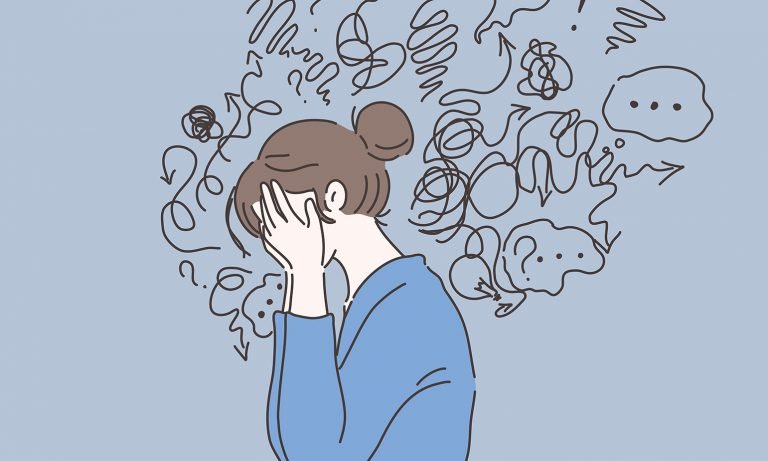Do you feel like you’re constantly on edge? Do you worry about things that seem insignificant to others? If so, you may be struggling with anxiety. Anxiety disorders are the most common mental illness in the United States, affecting 40 million adults each year. But don’t worry – there is help available. Moreover, in this article, we will discuss how to identify and deal with anxiety. Let’s take this anxiety test.
Contents
- 1 What Is Anxiety?
- 1.1 How Do I Know If I Have Anxiety?
- 1.2 What Are the Different Types of Anxiety Disorders?
- 1.3 How To Diagnose Anxiety Disorders?
- 1.4 What Is An Anxiety Test?
- 1.5 Different Types Of Anxiety Test
- 1.6 How To Take An Anxiety Test?
- 1.7 Sample Questions In An Anxiety Test
- 1.8 Who Should Take an Anxiety Test?
- 1.9 Benefits Of An Anxiety Test
- 1.10 How To Interpret The Results Of An Anxiety Test?
- 1.11 What If I Have A Positive Result On My Anxiety Test?
- 1.12 What If I Have A Negative Result On My Anxiety Test?
- 1.13 How To Deal With Anxiety?
- 2 Conclusion
- 3 A Word From Therapy Mantra
What Is Anxiety?
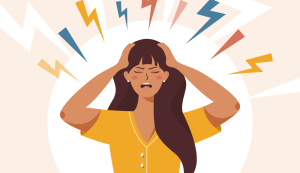
Anxiety is a feeling of worry, nervousness, or fear. It can be mild or severe and is often accompanied by physical symptoms such as sweating, heart palpitations, and dizziness. Anxiety disorders are the most common mental health problem in the United States, affecting 40 million adults each year.
Anxiety can be caused by a variety of factors including genetics, stress, lifestyle choices, and health problems.
How Do I Know If I Have Anxiety?
The best way to find out if you have an anxiety disorder is to take an anxiety test. This will help you identify the specific type of anxiety you are experiencing and the severity of your symptoms.
What Are the Different Types of Anxiety Disorders?

There are several different types of anxiety disorders, each with its own set of symptoms. The most common types include:
- Generalized Anxiety Disorder (GAD) – characterized by excessive worry about numerous everyday issues
- Social Anxiety Disorder (SAD) – fear or avoidance of social situations
- Specific Phobias – fear of a specific object, situation, or activity
- Panic Disorder – sudden episodes of intense fear that may include chest pain, shortness of breath, dizziness, or abdominal discomfort
- Obsessive-Compulsive Disorder (OCD) – intrusive thoughts and repetitive behaviors
- Posttraumatic Stress Disorder (PTSD) – symptoms that occur after exposure to a traumatic event
How To Diagnose Anxiety Disorders?
If you are feeling symptoms of anxiety, you should see a mental health professional. They will tell if it’s something bad or not. A qualified therapist will ask you about your symptoms, where they come from, and your habits to figure out if you have an anxiety disorder.
What Is An Anxiety Test?
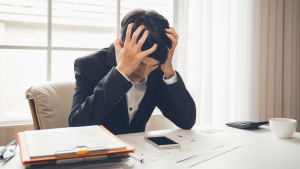
An anxiety test is a questionnaire or set of questions used to determine whether or not someone has anxiety. The test may also be used to measure the severity of someone’s anxiety. There are many different types of anxiety tests, but most tests include questions about symptoms of anxiety, such as feeling tense or worried all the time, having difficulty sleeping, and avoiding things that make you anxious.
Different Types Of Anxiety Test
There are several different types of anxiety tests, including self-assessment tests, diagnostic tests, and trait scales.
- Self-Assessment Tests: Self-assessment tests are questionnaires that people can complete on their own to determine if they have anxiety. These tests often include a list of symptoms of anxiety and ask the person taking the test to indicate how often they experience these symptoms.
- Diagnostic Tests: Diagnostic tests are used by doctors to determine if someone has an anxiety disorder. These tests usually involve a conversation between the doctor and patient in which the doctor asks questions about the patient’s symptoms and history of mental health problems.
- Trait Scales: Trait scales measure how many certain personality traits a person has. Some anxiety tests use trait scales to measure how likely someone is to experience anxiety symptoms.
How To Take An Anxiety Test?
Most anxiety tests are administered in a written format, but some tests are also available as computer programs or apps. If you are taking a written test, it is important to read all the questions carefully and answer them honestly. It is also important to take your time when completing the test and to not rush through the questions.
Sample Questions In An Anxiety Test
Below are some sample questions from an anxiety test.
- Do you ever feel tense or worried all the time?
- Do you have difficulty sleeping at night?
- Have you ever avoided things that make you anxious?
- Do you ever feel like you’re having a panic attack?
Who Should Take an Anxiety Test?
If you think you might have anxiety, it’s a good idea to take an anxiety test. It is important that only a qualified mental health professional can diagnose you with anxiety. If you’re experiencing severe symptoms or if your daily life is significantly impacted by your anxiety, it’s best to see a therapist. If you are not feeling too bad, or if you can manage your anxiety, then you should see a counselor or psychologist.
Benefits Of An Anxiety Test
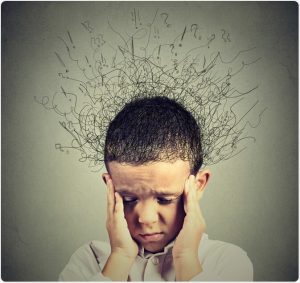
There are many benefits to taking an anxiety test. Some of these benefits include:
- Knowing whether or not you have anxiety can be helpful in terms of knowing how to deal with your symptoms.
- Being able to identify the type of anxiety you have can help you find the best treatment.
- Trait scales can help you understand your own personal risk for experiencing anxiety symptoms.
- Some self-assessment tests can be used as a tool to monitor your progress over time.
How To Interpret The Results Of An Anxiety Test?
If you take an anxiety test and score high on the scale, it does not mean that you have a mental illness. It only means that you experience some symptoms of anxiety. However, if your score is low, this does not mean that you do not have anxiety. Everyone experiences different levels of anxiety and some people may not exhibit any signs or symptoms of the disorder.
What If I Have A Positive Result On My Anxiety Test?
If you receive a positive result on your anxiety test, it’s important to seek professional help. Only a qualified mental health professional can diagnose you with an anxiety disorder. There are many treatments available for anxiety, including therapy, medication, and self-help strategies. It is important to find the treatment that works best for you and to stick with it.
What If I Have A Negative Result On My Anxiety Test?
If you receive a negative result on your anxiety test, it’s still a good idea to talk to a mental health professional about your symptoms. Some people who don’t score high on an anxiety test may still have an anxiety disorder. It is important to get help if you feel like your anxiety is impacting your daily life.
How To Deal With Anxiety?
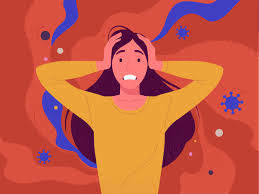
There are many different ways to deal with anxiety. Some people find that therapy or medication works best for them, while others find that self-help strategies work better.
- Therapy: If you decide to see a therapist, it is important to find one who specializes in anxiety disorders. The therapist will help you understand your symptoms and will teach you coping skills.
- Medication: There are many different types of medication available for the treatment of anxiety. Your doctor will help you find the medication that is best for you.
- Self-Help Strategies: There are many self-help strategies available for the treatment of anxiety. Some common strategies include relaxation techniques, meditation, and cognitive-behavioral therapy (CBT).
Therapy Options For Anxiety
- Cognitive-Behavioral Therapy (CBT): CBT is a type of therapy that helps you change the way you think and behave. It can be helpful in reducing anxiety symptoms.
- Dialectical Behavior Therapy (DBT): DBT is a type of therapy that helps you manage your emotions. It can be helpful in reducing anxiety symptoms.
- ACT: ACT is a type of therapy that helps you accept your thoughts and feelings. It can be helpful in reducing anxiety symptoms.
- Mindfulness-Based Cognitive Therapy (MBCT): MBCT is a type of therapy that combines mindfulness meditation with cognitive therapy. It can be helpful in preventing relapse for people who have experienced depression.
- Dialectical Behavior Therapy (DBT): DBT is a type of therapy that helps you manage your emotions. It can be helpful in reducing anxiety symptoms.
- Interpersonal Psychotherapy (IPT): IPT is a type of therapy that focuses on your relationships with others. It can be helpful in reducing anxiety symptoms.
- Psychodynamic Therapy: Psychodynamic therapy is a type of therapy that explores your past experiences and how they have affected your current life. It can be helpful in reducing anxiety symptoms.
Therefore, there are many different types of therapies available for the treatment of anxiety disorders. It is important to find the one that works best for you.
Medication Options For Anxiety

There are many different types of medication available for the treatment of anxiety. Your doctor will help you find the medication that is best for you.
Some common medications include:
- Benzodiazepines: Benzodiazepines are a type of medication that helps to reduce anxiety symptoms. They work quickly and can be helpful in emergencies. However, they should not be used long-term.
- SSRIs: SSRIs are a type of antidepressant that helps to reduce anxiety symptoms. They work slowly but can be helpful over the long term.
- SNRIs: SNRIs are a type of antidepressant that helps to reduce anxiety symptoms. They work slowly but can be helpful over the long term.
- MAOIs: MAOIs are a type of antidepressant that helps to reduce anxiety symptoms. They work slowly but can be helpful over the long term.
- TCAs: TCAs are a type of antidepressant that helps to reduce anxiety symptoms. They work slowly but can be helpful over the long term.
- Beta-blockers: Beta-blockers are a type of medication that helps to reduce anxiety symptoms. They work quickly and can be helpful in emergencies.
Therefore, there are many different types of medications available for the treatment of anxiety disorders. Your doctor will help you find the medication that is best for you. It is important to find the one that works best for you and to stick with it.
Self Help Strategies
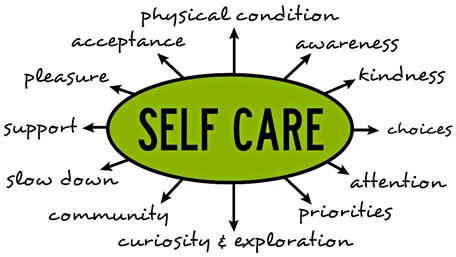
There are many self-help strategies available for the treatment of anxiety. Some common strategies include relaxation techniques, meditation, and cognitive-behavioral therapy (CBT).
- Relaxation Techniques: Relaxation techniques can be helpful in reducing anxiety symptoms. Some common relaxation techniques include deep breathing exercises, progressive muscle relaxation, and visualization.
- Meditation: Meditation can be helpful in reducing anxiety symptoms. There are many different types of meditation, so it is important to find one that works best for you.
Conclusion
It’s normal to feel some anxiety sometimes. But if you are feeling anxious thoughts and feelings every day, it might be time for help. Thanks for taking our anxiety test! We hope that it has provided you with some information about your anxiety levels and how to best manage them. Moreover, if you have any questions or want to talk to someone about your results, please don’t hesitate to reach out.
A Word From Therapy Mantra
Your mental health — Your psychological, emotional, and social well-being — has an impact on every aspect of your life. Positive mental health essentially allows you to effectively deal with life’s everyday challenges.
At TherapyMantra, we have a team of therapists who provide affordable online therapy to assist you with issues such as depression, anxiety, stress, workplace Issues, addiction, relationship, OCD, LGBTQ, and PTSD. You can book a free therapy or download our free Android or iOS app.
